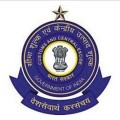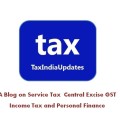.
Circular No. 1018/6/2016-CX dated February 29, 2016 [F. No. 96/54/2014-CX.1] specified the situation regarding withdrawal from prosecution in Central Excise cases older than 15 years involving duty less than Rs.25 lakhs.
Circular No. 1018/6/2016-CX
F. No. 96/54/2014-CX.1
Government of India
Ministry of Finance
Department of Revenue
Central Board of Excise & Customs
New Delhi, dated the 29th February, 2016
Subject: – Withdrawal from prosecution in Central Excise cases older than 15 years involving duty less than rupees five lakhs.- reg.
CAG submitted its report regarding administration of prosecution and penalty in Central Excise and Service Tax wherein regarding withdrawal of old cases of prosecution, it noted that “though the discretion to allow withdrawal of prosecution ultimately rests with the Court, it is the department’s responsibility to ensure periodic monitoring of the status of long pending cases as to ensure that cases which in the opinion of the department merit withdrawal are being brought to the notice of the Court alongwith all supporting facts at the proper time in terms of Sections 257 and 321 of CrPC 1973.”
- The issue has been examined. The present limit for arrest and prosecution in Central Excise cases is Rupees one crore which was made effective vide Circular No. 1010/17/2015-CX dated 23.10.2015. Earlier, the limit for launching prosecution was Rs.25 Lakhs, which came into effect vide letter F.No. 208/31/97-CX6 dated 04.04.1994. Taking into consideration this increase in the limit for prosecution over a period of time, expenditure involved in continuing with old prosecution and equivalent value of the present threshold limit of rupees one crore in the past, it was decided to collect information on prosecution pending in courts for more than fifteen years where the duty involved is less than rupees five lakhs. On the basis of the reports received, it was found that there are 288 cases older than fifteen years, involving duty of rupees five lakh or less. In these 288 cases, the total amount of duty evasion involved was found to be Rs. 2.31 crore, which comes to an average of Rs. 80,000/- per case.
-
Provisions relating to withdrawal of prosecution are contained in Section 257 and Section 321 of the CrPC. Further, in the case of Sheo Nandan Paswan Vs. State of Bihar and Others, (1983) 1 SCC 438, Hon’ble Supreme Court noted, while examining the scope of Section 321, four grounds for seeking withdrawal from prosecution. Out of these four grounds, two relevant grounds for Central Excise are as under:
(i) Inexpediency of the prosecution for reasons of State and Public Policy, and
(ii) Adverse effects that the continuance of the prosecution will bring to the public interest in the light of the changed situation.
- In the light of the legal provisions under section 257 and 321 of the Code of Criminal Procedure 1973, and the judgement of the Hon’ble Supreme Court, it appeared that Central Excise cases involving duty amount less than Rs. five lakhs and undergoing prosecution in the courts for more than fifteen years may be considered for withdrawal from prosecution. Accordingly, these cases where evasion of Central Excise duty is less than Rs. 5 lakh and pending in court for more than 15 years were brought to the notice of the Competent Authority suggesting that withdrawal from prosecution would be desirable in these cases on the following grounds:
4.1 Present limit for arrest and prosecution in Central Excise is Rupees one crore. This enhanced limit of one crore was prescribed on 23.10.2015. Before this date, the limit since 1994 was rupees twenty five lakhs. The present enhanced monetary limit indicates a liberal policy of the government in relation to prosecution. If this limit is interpolated to a value fifteen years back, it would be higher than Rupees five lakh. Therefore, it would be reasonable to conclude that the equivalent cases, of the cases under consideration, would not undergo prosecution today,
4.2 Withdrawal from prosecution would be in conformity with the policy of the Government to reduce litigation in taxation,
4.3 Expenditure involved in continuing with such prosecution may not be commensurate with the result likely to be achieved,
4.4 The Human resources saved can be redeployed to garner more revenue for the exchequer.
4.5 Withdrawal of such cases would send a positive message to the manufacturing sector in which policy of “Make in India” is being actively pursued.
- After due consideration, it has been decided with the approval of the competent authority to recommend filling of application before the Hon’ble Court to withdraw from prosecution of the cases where evasion of Central Excise duty is less than Rupees five lakhs and prosecution is pending for more than fifteen years. Chief Commissioner shall give direction to the Central Excise Officer in the concerned Commissionerate to request the Public Prosecutor to file an application requesting the Court to allow withdrawal from prosecution in accordance with law. It may be noted that on filing of such applications, it is for Hon’ble Courts to finally decide whether or not to pursue the prosecution.
Attention is also invited to the circular no. 1010/17/2015-CX dated 23.10.2015 on withdrawal from prosecution where quasi-judicial proceedings on identical facts have failed. Appropriate action as per this Circular may be taken where necessary.
Application should also be moved for withdrawal from prosecution against the co noticees in a case, where the prosecution, against the main noticee is proposed to be withdrawn, as the grounds for withdrawal of prosecution would apply equally to the co noticees.
On examination of specific cases, if there are more grounds available for discontinuation of prosecution proceedings, the same may be incorporated in the application before writing to the Public Prosecutor to file the application. On the other hand, if there are valid grounds available for continuation of the prosecutions proceedings, the same should be examined by the Chief Commissioner and where it is proposed to continue with prosecution, it should be brought to the notice of the Central Excise wing in the Board with necessary justification.
This shall come into force from 1st of March, 2016. Difficulty, if any, in the implementation of the circular should be brought to the notice of the Board. Hindi version will follow.
(Santosh Kumar Mishra)
Under Secretary to the Government of India




